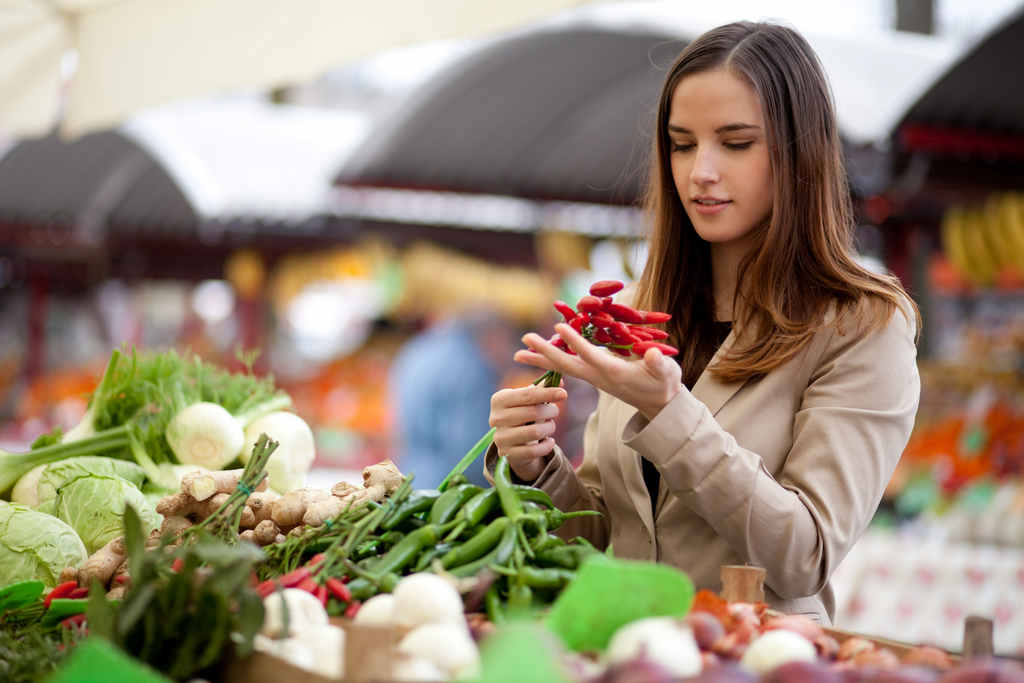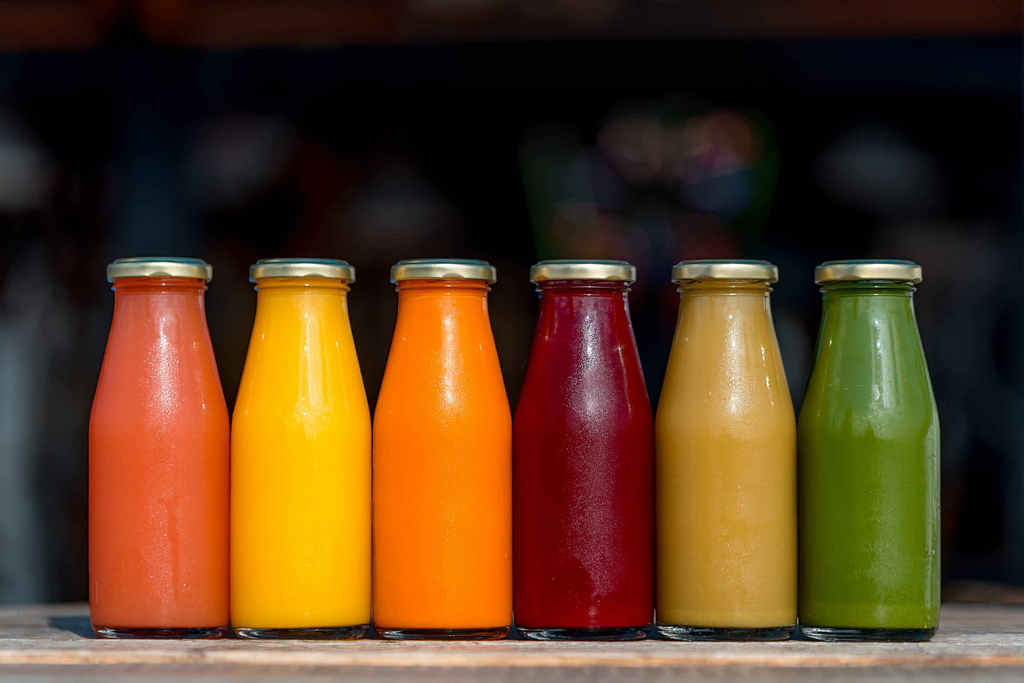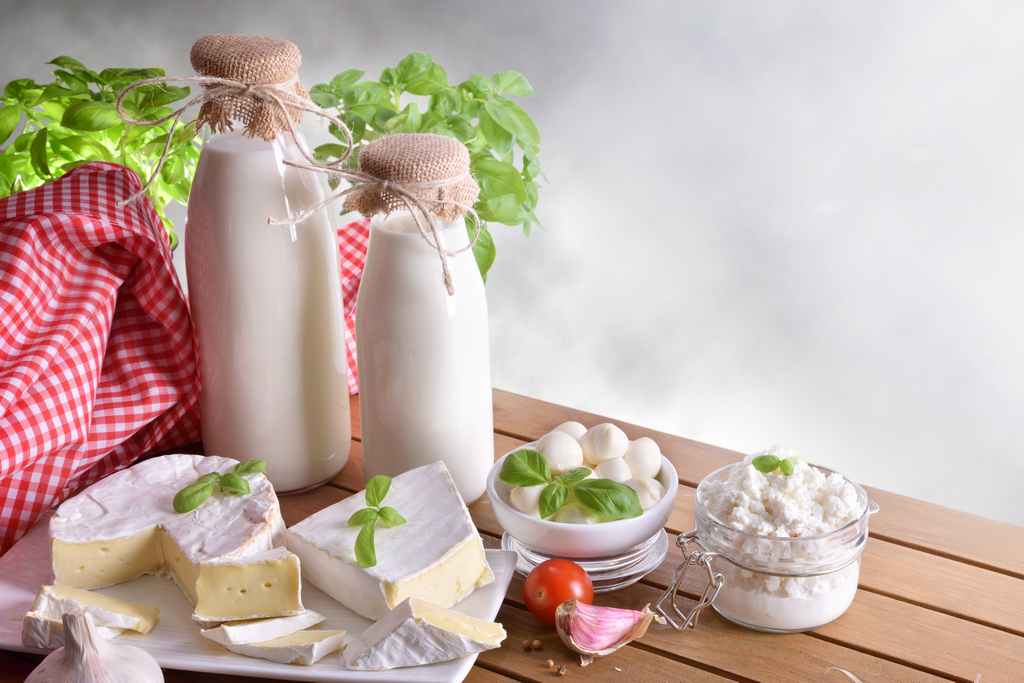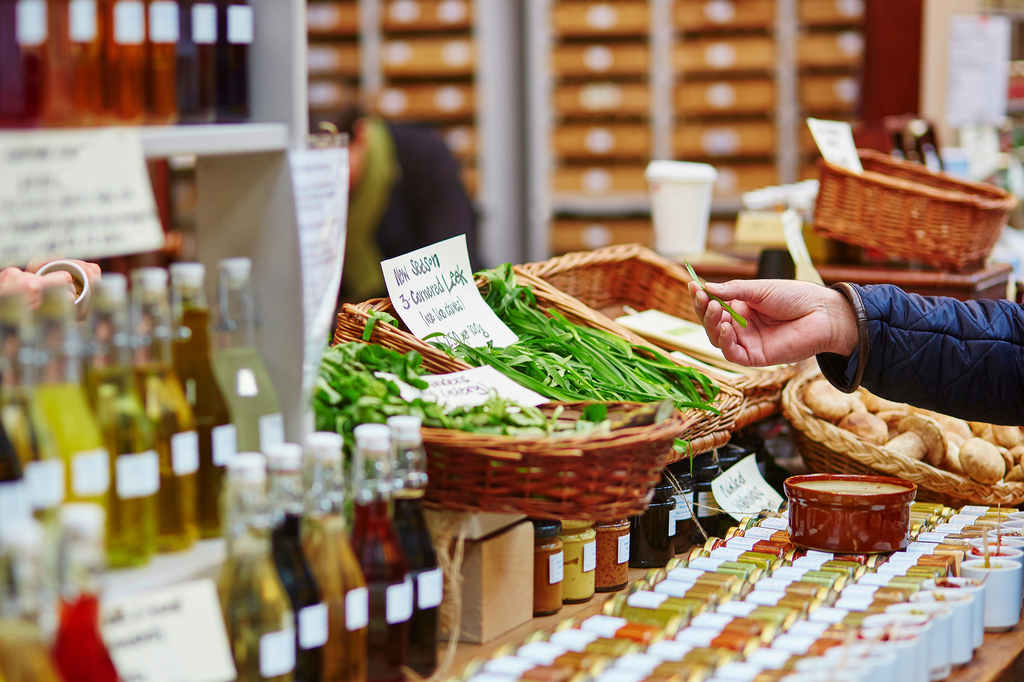From spring into fall, farmer’s markets provide a variety of fresh produce as well as many other foods. Shopping at a farmer’s market or a farm stand is a great way to get locally-grown, fresh fruit, vegetables, and other foods for you and your family.
Farmers markets are a gathering place where you can buy locally produced food, and at the same time, get to know the farmer and story behind the food you purchase. These types of markets improve earning potential for farmers and ranchers, building stronger community ties and access to local foods.
 Image Source: Shutterstock
Image Source: Shutterstock Many people believe locally grown fruits and vegetables are completely safe. Unfortunately, several cases of foodborne illness have been connected with farmer;s markets and local food. As the numbers of these markets have grown, there may be questions about the safety of the foods purchased there.
Many state and local governments have their own food safety rules for these markets, and vendors must comply with them. But, there are also basic guidelines that you should follow to ensure that the farm-fresh food you buy is safe.
Farmer’s Market Produce Tips
- Only purchase produce that is not bruised or damaged.
- When buying pre-cut produce — such as a half a watermelon or cut veggies from a salad bar — choose only items that are refrigerated or surrounded by ice.
- Make sure fresh fruits and vegetables are bagged separately from meat, poultry, and seafood products when packing them to take home from the market.
- Before and after handling fresh produce at home, wash your hands for 20 seconds with warm water and soap.
- Learn about foodborne pathogens, cross contamination, cold and hot food safety, and best practices to prevent foodborne illness.
- Food Manager ANSI Certification: $99.00 - Valid in all States
- Food Handler Training: Only $7.00!
- 10% OFF: Enter Promo Code "train10off" at Checkout
- Wash fruits and vegetables thoroughly under running water just before eating, cutting, or cooking. Even if you plan to peel the produce before eating, it is still important to wash it first. Any bacteria present on the outside of items like melons can be transferred to the inside when you cut or peel them.
- Be sure to refrigerate cut or peeled fruits and vegetables within 2 hours after preparation.
Raw Juices and Cider Tips
Check to see whether the juice or cider has been treated (pasteurized) to kill harmful bacteria. Pregnant women, children, older adults, and people with weakened immune systems should drink only pasteurized or treated juice.
 Image Source: Shutterstock
Image Source: Shutterstock Raw Milk and Cheese Tips
- Don’t buy milk at a farmer’s market unless you can confirm that it has been pasteurized or otherwise treated to destroy microorganisms. Raw milk can harbor dangerous bacteria, such as Salmonella, E. coli, and Listeria, which can pose serious health risks to you and your family.
- Pregnant women, older adults, and people with immune systems weakened by such conditions as diabetes, cancer, HIV/AIDS, liver or kidney disease, alcoholism, and organ transplants are at higher risk for illness caused by Listeria. One source for these bacteria is soft cheese made from unpasteurized milk. If you buy soft cheese (including feta, Brie, Camembert, blue-veined cheeses, queso blanco, queso fresco, and panela), check the label to make sure that it’s made from milk that has been pasteurized.
- More Information: CDC Raw Milk
- CDC Infographic: Raw Milk – Know the Facts (PDF)
 Image Source: Shutterstock
Image Source: Shutterstock Egg Food Safety Tips
- Make sure that eggs are properly chilled at the market. FDA requires that untreated shell eggs must be stored and displayed at 45°F.
- Before buying eggs, open the carton and make sure that the eggs are clean and the shells are not cracked.
Meat and Poultry Safety Tips
- Make sure that meat or poultry is kept in closed coolers with adequate amounts of ice to maintain cool temperatures.
- Bring an insulated bag or cooler with you to keep meat and poultry cool on the way home.
- Be sure to keep meat and poultry separate from your other purchases, so that the juices from raw meat or poultry (which may contain harmful bacteria) do not come in contact with produce and other foods.
Canned and Jarred Vegetables Safety Tips
Because many vegetables and some vegetable-based sauces have a low acid content they must be canned properly to prevent the bacteria that cause botulism to grow and produce toxin in sealed cans and jars. That’s why FDA requires all canners of low-acid foods that will be sold, no matter how small their business may be, to register and submit information about their canning processes to the agency. Many states have similar requirements.
 Image Source: Shutterstock
Image Source: Shutterstock USDA – National Farmers Market Directory
The National Farmers Market Directory lists markets that feature two or more farm vendors selling agricultural products directly to customers at a common, recurrent physical location.
Maintained by the Agricultural Marketing Service, the Directory is designed to provide customers with convenient access to information about farmers market listings to include: market locations, directions, operating times, product offerings, accepted forms of payment, and more. (Screenshot)
